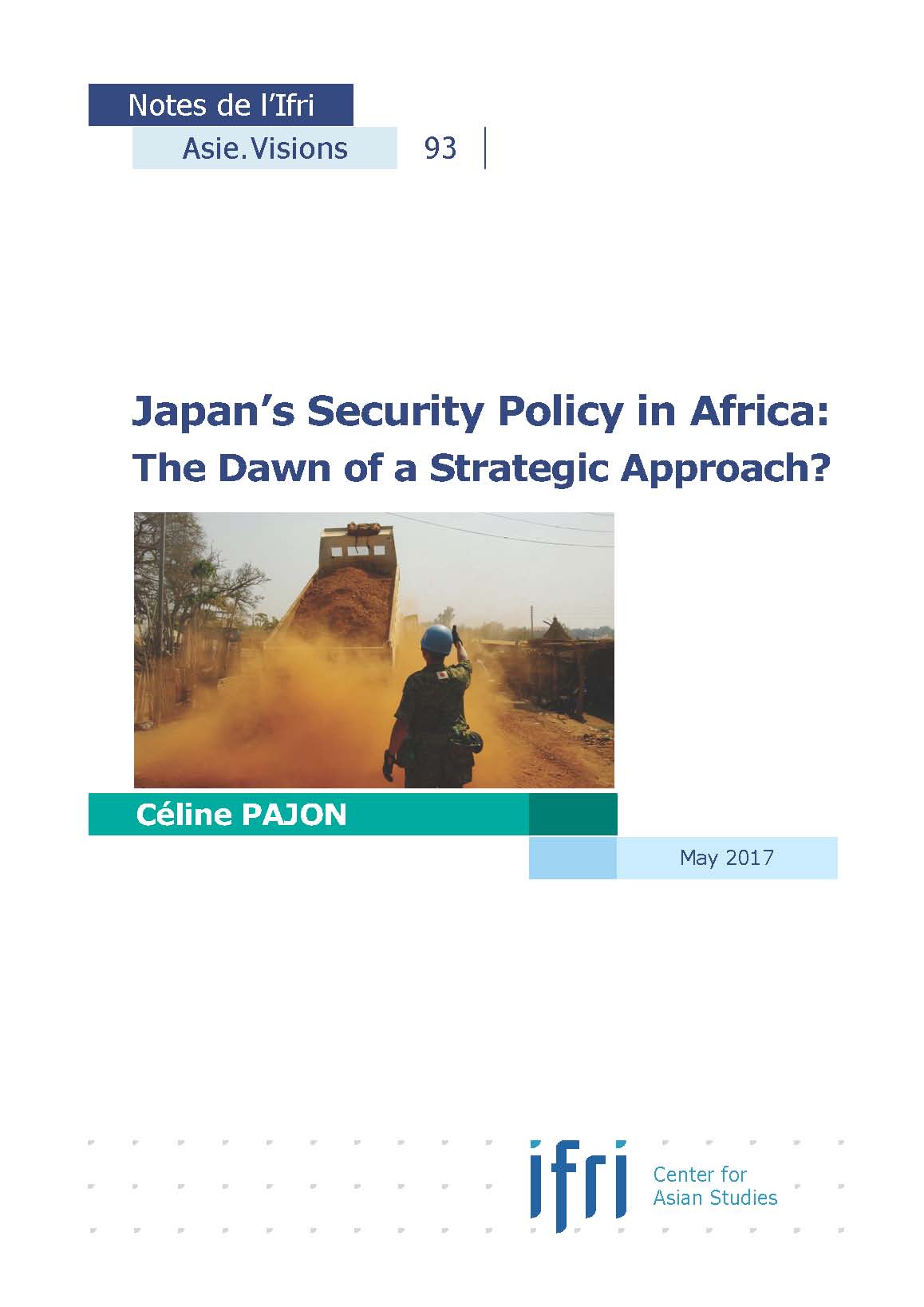Japan's Security Policy in Africa: The Dawn of a Strategic Approach?

This paper documents new features of Japan's diplomacy that tends to gradually integrate Africa into Japan's strategic interests.
In recent years, Japan's security contribution in Africa rose with the unprecedented participation of the Self-Defense Forces (SDF) in an international counter-piracy operation in the Gulf of Aden, the subsequent build-up of its first overseas military base in Djibouti, and the SDF's longest participation in United Nations Peace-Keeping Operations (UNPKO), in South Sudan (2012-May 2017). This increased security contribution has been driven by a need to react to various events, such as the rising Chinese presence in Africa and the increase in terrorist attacks and piracy. It is also a means of reassuring a risk-averse business sector and encouraging it to step up its investment in Africa. Finally, it is about demonstrating Japan's identity as a "proactive contributor to peace", and responsible shareholder in international security.
While media attention is drawn to the Japanese SDF presence on the ground and at sea, the bulk of Japan's security contribution to Africa remains low-key, mostly in the form of financial contributions and capacity-building assistance, and is very often channeled through or in partnership with multilateral institutions or a third country, such as France.
This said, Africa is now being associated more tightly with Japan's strategic core interests. Terrorist attacks on the continent are posing a direct risk to Japanese nationals. Threats to the security of vital maritime shipping routes transiting from the Middle East to the Indian Ocean are also directly undermining Tokyo's interests. The inclusion of Africa in the "Free and Open Indo-Pacific Strategy" demonstrates Japan's willingness to adopt a more strategic approach to Africa.
Download the full analysis
This page contains only a summary of our work. If you would like to have access to all the information from our research on the subject, you can download the full version in PDF format.
Japan's Security Policy in Africa: The Dawn of a Strategic Approach?
Related centers and programs
Discover our other research centers and programsFind out more
Discover all our analyses
Opening up the G7 to South Korea to Address Contemporary Global Challenges
The G7’s global influence has diminished as powers like China reshape international governance through initiatives such as BRICS and the Shanghai Cooperation Organisation (SCO). With the G7 now representing just 10 per cent of the world’s population and 28 per cent of global GDP, its relevance is increasingly questioned.
Expanding SPDMM as a pivotal institution in the Pacific – A French perspective
The South Pacific Defence Ministers’ Meeting (SPDMM) is the only forum that brings together defense ministers from the wider South Pacific — including Chile, which is hosting it for the first time. This heterogeneous group of countries with varying resources, capacities, and interests — Australia, Chile, Fiji, France, New Zealand, Papua New Guinea (PNG), and Tonga — are united by their shared determination to strengthen cooperation on maritime security and humanitarian assistance and disaster relief (HADR) activities.
EU’s Derisking From China: A Daunting Task
With economic security as a major concern, the EU has recently turned to “derisking” from China. The EU strategy entails reducing critical dependencies and vulnerabilities, including in EU supply chains, and diversifying where necessary, while recognizing the importance and need to maintain open channels of communication.
Sri Lanka’s NPP Government. From System Change to Structural Compliance
In September 2024, a relative outsider to Sri Lanka’s two-party-dominated political system, Anura Kumara Dissanayake, won the presidential elections. The anti-establishment, populist movement he represented, the National People’s Power (NPP), went on to receive an overwhelming mandate in the November 2024 general elections, winning 159 seats in a 225-member parliament.











